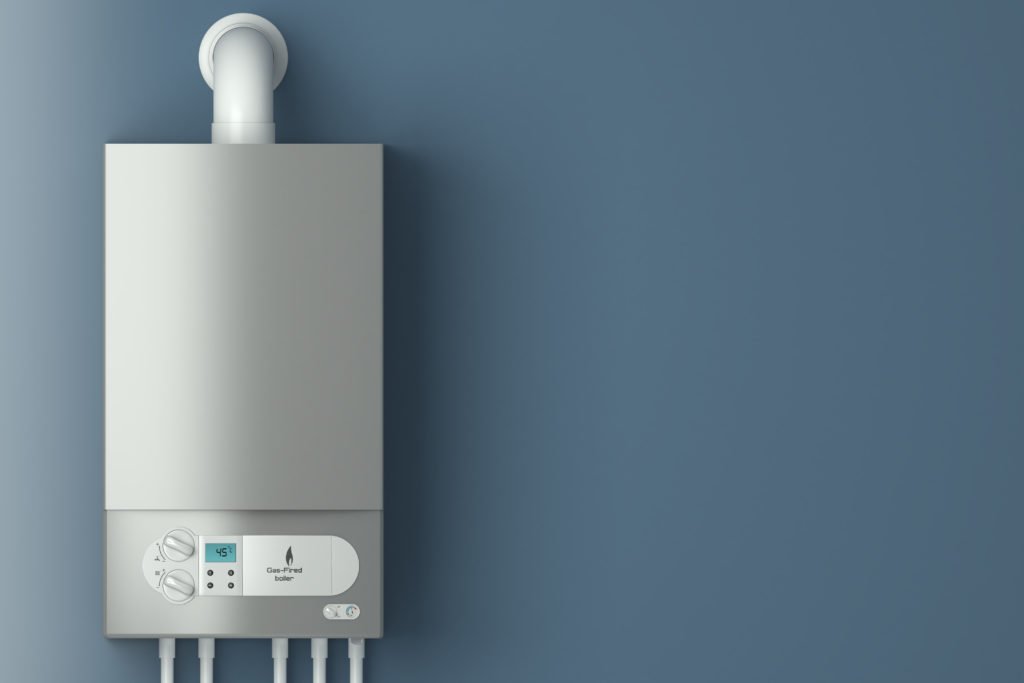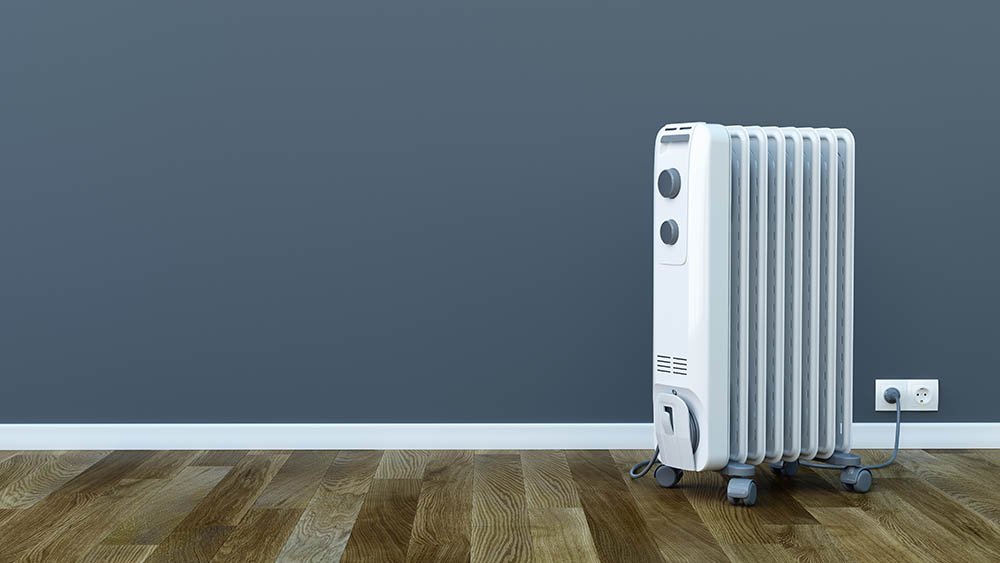When it comes to your heating system there are a lot of decisions you’ll have to weigh for choosing the best system for your needs.
One of the most pivotal questions you’ll have to ask yourself is whether you want to go with gas or electric heating. There are benefits and drawbacks to both.

Gas heaters are a widely popular heating option since they work as a central heating system for the entire home. They usually run on either natural gas or liquid propane. When the pilot light is on, burners in the combustion chamber ignite to heat up the air. The heat they create travels into the heat exchanger and the air is adjusted to the desired temperature.
From here the hot air is moved through the ducts by the blowers to heat rooms throughout your home.
In order to install a gas furnace, you’ll need space to accommodate a chimney or a flue. This is necessary to vent out any emissions resulting from the combustion process. The heater itself is also quite large so it can be a hassle to transport. They generally require professional installation.
It can cost anywhere from $2,571 - $6,213 for a furnace replacement. The centralized furnace with flue outlets tends to drive up the price. But they make up for it in operational cost. Natural gas is generally more affordable compared to the cost of operation on electricity. That means gas heaters are ideal for cold climates that rely on central heating through the winter months.
Gas heaters require regular maintenance in order to extend their longevity. Most HVAC professionals suggest yearly maintenance. It’s reported that 75% of no-heat calls in the winter are due to a lack of proper furnace upkeep!
Most issues you’ll encounter with a gas heater are fairly mild. It could be as simple as a dirty filter or an overdue system reset. This will be handled swiftly during a typical maintenance call. On occasion, more serious issues may arise such as cracks or worked out parts. This can usually be repaired too but it depends on how old the heater is.
Failing to keep up with regular maintenance can result in system-failure or, even worse, furnace malfunction. But a well-maintained system will typically last you 10 to 20 years.
Although gas heaters are popular, there are a few considerations to take into account if you want to make an informed decision.
There are several potential safety hazards associated with this type of heater. Though highly unlikely, ignition or fire could occur if you don’t keep up with maintenance. Carbon monoxide and nitrogen dioxide leaks are another source of potential concern.
Gas heaters also require a lot of maintenance in the form of regular inspections and have a short lifespan compared to their electric counterparts. They can also be expensive to install, especially if your home doesn’t already have a chimney or flue.

This type of heater converts electric currents to heat. It works by utilizing resistors -or heating coils- that emit radiant energy. These resistors are typically made from nichrome wire in modern heaters.
A current passes through the coil to produce heat. Cool air is pulled, heated up, and pushed out into the room it’s heating. This process generally works better in smaller spaces.
Electric heaters are space heaters, meaning they are usable in a single room rather than a central heating system.
Between the gas heater and the electric heater, electric is easier to install, bar none. If you choose to go with an electric heater, all you have to do is find a convenient plug and use it as you need it. Wall-mounted electric heaters involve a bit more effort to install.
But no need to call in the professionals if you feel comfortable; it’s fairly easy to accomplish yourself. An electric furnace can be a little tougher to install but still not as difficult as a gas heater as there is no need for a vent.
With little to no installation process, the electric heater is not a huge investment up front. Generally, the heater itself is fairly cheap. It can range between $30 - $150 depending on how big of a room you wish to heat. Compared to a brand new gas heater, that’s nothing.
What is fairly pricey is running your electric heater. The current energy rate is roughly 10.5 cents per kilowatt-hour. That means if you continuously use a 1500-watt heater, you’ll likely pay around $113.40 per 30-day cycle. Remember, that’s per heater!
Electric heaters require little maintenance and any upkeep necessary can easily be done yourself. An electric furnace typically doesn’t need maintenance as much as its gas counterpart. Maintenance is still an important part of keeping your electric heater up and running such as cleaning and turning it off every now and again for some rest.
If not tended to, the heating elements can break down and stop working. The blower fan and motor also need to be regularly cleaned and lubricated. If maintained appropriately, an electric heater can last between 20 and 30 years.
Electric heaters don’t generate and circulate heat as efficiently as a gas heater can. They are generally better suited for smaller rooms and homes. If you have a lot of space to heat up, electric heaters are not a great option.
It can also be pricey to constantly run this type of heater. Although you don’t have to pay as much for an electric heater up front, your monthly bill might not be ideal.
Gas and electric heaters are both great options in the right situation. Both are quality heaters in their own way. Depending on what your needs are, you could go either way. There are a few factors that will play into which heater is best for you.
How often will you actually have to use your heating? If you live in a warmer climate such as California or Florida you’ll likely run your heat a whole lot less. Electric heaters are generally better suited for these types of environments.
If you live in a more frigid climate like Pennsylvania in the wintertime, a gas heater is a better choice. They cost less to operate and they do a better job distributing hot air throughout your home.
How much money do you have upfront? Installation costs vary between the two options. If you’re ready to make a bigger investment, a gas furnace will be a good option. If you have less money to put down right now it might be wise to stick with an electric heater.
In the long run, gas furnaces can save you money as far as your monthly bill goes. Electric heaters can run up your electricity costs significantly. This is another winning point for gas heating.
Electric heating does hole the advantage of less maintenance and a longer lifespan. A gas furnace requires a yearly maintenance check. This can be a pretty penny, especially if there’s something severely wrong with your furnace.
The size of the space you want to heat is another contributing factor to which option you should select. If you have a large home, a gas heater will be the most efficient way to go. Electric heaters tend to do better in a small home or room.
Whatever you decide, WM Buffington is here to help every step of the way! If you’re in the Central Pennsylvania and Harrisburg area, get in touch with us today to go over your options. We offer a free, no-obligation estimate and 0% interest financing on select products!